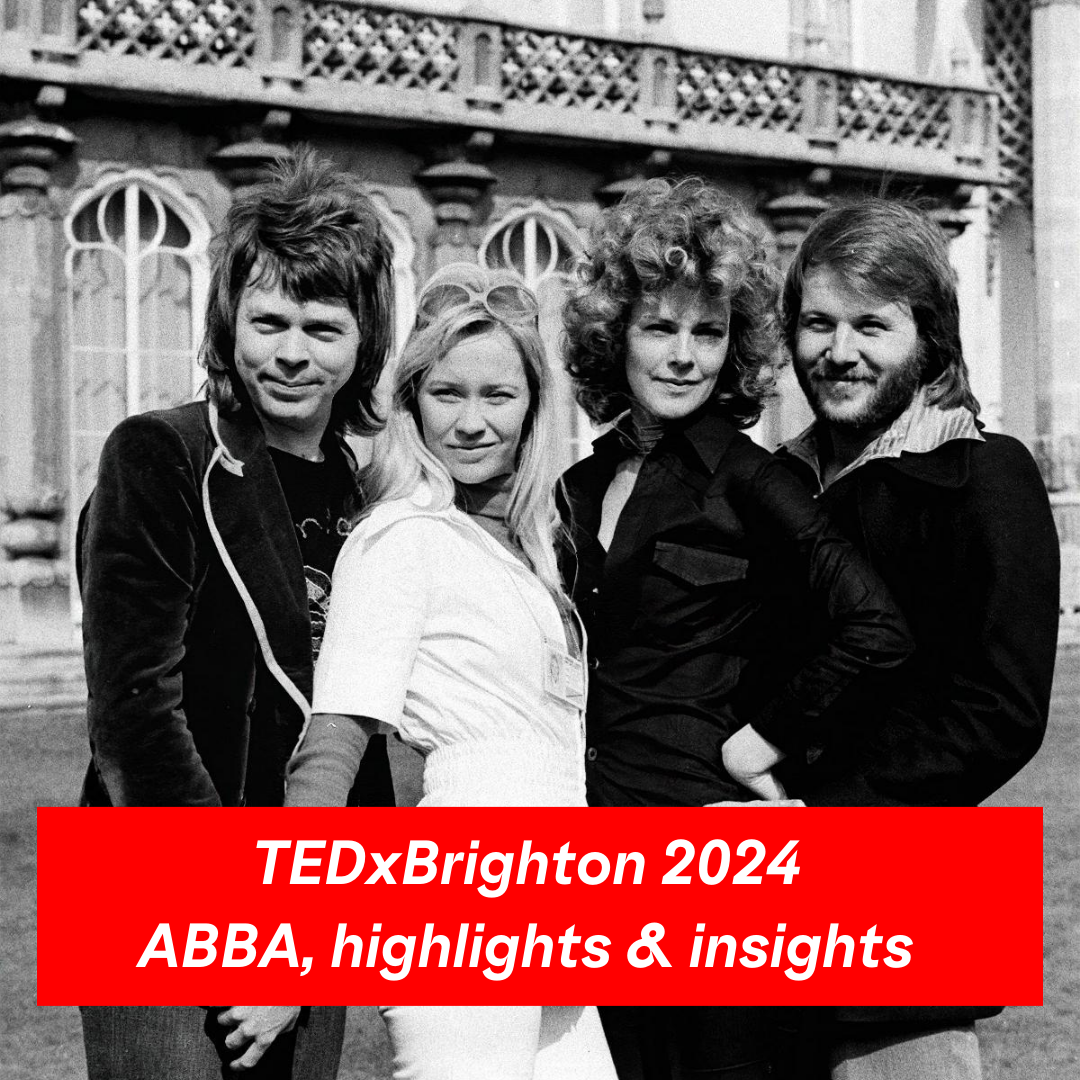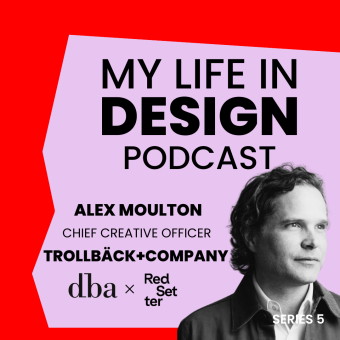Events
TEDxBrighton 2024: ABBA, highlights & insights
Ellie Harbinson & Josh Johnson
Red Setter's TEDxBrighton Team
We attended this year’s TEDxBrighton event at the Brighton Dome. Fifty years after ABBA stood on the stage to win Eurovision 1974, we partook in a day of inspirational talks, and workshops dedicated to ideation and creative expression.
With almost twenty speakers, musical acts, and dance performances crammed into the eight hours – it was a busy day. And it’s tough to distil all the thinking and stories we heard into a highlight reel… but we’ll do our best.
1. The power of storytelling, and why it’s currently under threat – James Dempster, marketer
James delved into a lot of conversations we’ve been having as an agency recently around how storytelling is an increasingly under appreciated yet valuable resource.
Guiding us from The Epic of Gilgamesh to the Parables of Jesus, and from Homer to Shakespeare, James illustrated the power of stories to transcend generations and help us understand our humanity. Did you know that the same neurological regions in the brain are stimulated when we read about an experience as when we live it? The brain does not make a distinction, stories are life.
Brands like John Lewis and Patagonia are harnessing this well through their campaigns, but James argues there’s so much room for other brands to be capitalising on the power of stories to enhance the experiences they provide – and to make people feel again.
2. The crisis of imagination – Kian Bakhtiari, founder of The People
Kian thinks we’re stripping ourselves of our childhood curiosity. With our current economic model prioritising consumption over all else and perception of “progress” skewed by profit, sales, and data metrics, we have become passive consumers instead of active participants in our world.
While we make huge advancements in the worlds of science, tech, and medicine, there’s a hidden consequence – that we’re starting to think there is nothing else for us to explore or create. But the physical reality isn’t our only reality, says Kian, there is an imagined reality that we need to rekindle our relationship with.
Adults need to adopt a beginner’s mindset, and start embracing play once more. Without preconceived notions of the world, children are better than us at challenging the norm. Just look to Greta Thunberg, from single protestor outside of the Swedish Parliament to mobiliser of 3.8 million people. Was she naive? No.
Culturally,1992 Korean hip hop band Seo Taji and Boys, were mocked for their unconventional and bold new approach to music, but are now considered the precursors to the multi-billion-dollar K-pop industry currently sweeping the globe.
One (of the many) things we took from Kian’s talk is that only when we realise the world doesn’t have to be what it is, can we begin to change it. Do not accept current systems by default.
3. Deciding which stories to believe – Mo Kanjilal Williams, Co-Create at Watch This Sp_ce
With the rise of ‘fake news’, AI deepfakes and social unrest, knowing what to believe can feel overwhelming. Add to that the algorithmic media, bombarding us with stories every second of the day (though all of them designed to be from a certain side of the story) and you find that when we’ve realised a story is real, we’re also very inclined to agree with it.
Our brains are faced with 11 million pieces of information at any given moment, but we can only process forty. As a result, our brains rely on stereotypes, assumptions, and pattern recognition to come to conclusions. Algorithms know this, these factors are how they supply us with what we see.
But if we’re only hearing one side of the story, how can we properly define the people these stories are written about? As Mo poignantly stated in her talk, definitions belong to the definer – not to the defined.
We have traditionally sought out the similarities within stories to determine who we consider ‘most credible’ – and within doing so, often we side with those who seem most like ourselves. This has led to leaders who look the same, workforces that look the same, and communities that shun the outliers.
Mo stresses that if we are to reclaim our sense of the world and how to change it, we need to actively engage in uncomfortable conversations and listen to other perspectives. Adopting a learning mindset and looking for common ground with those who we may not understand or agree is imperative. If each of us begin engaging in these conversations, we can change the world.



